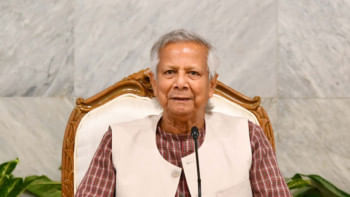Naked ambition triumphs in politics Pakistan-style
Six months into the job, President Asif Ali Zardari has pulled Pakistan into a crisis that has shattered hopes his civilian rule would put national interest above naked ambition, analysts say.
The only nuclear-armed Muslim country in the world elected a new government 13 months ago amid hopes that democracy could rise from the ashes of military rule and the assassination of Zardari's wife Benazir Bhutto.
But Pakistan's troubles have worsened. More than 70 bombings have killed hundreds. The International Monetary Fund was forced to bail out the economy. And neither offensives nor peace deals have quelled the menace of Taliban and al-Qaeda.
Dreams of a national unity government are in tatters.
The president is on a collision course with the main opposition leader, Nawaz Sharif, who has mobilised massive support to demand the promised reinstatement of judges sacked by former military ruler Pervez Musharraf.
The government banned protests and rounded up more than 1,000 activists into prison vans -- a crackdown that the US-based Human Rights Watch says imperils the country's nascent democracy.
"It seems they got so busy with infighting, there is hardly any time left to concentrate on governance," said political analyst Shafqat Mahmood.
"There is a desire for power grab, there is a desire to play brinkmanship, to play games with one another," he said.
The Bhuttos, landed aristocrats from Sindh, and the Sharifs, industrialists from Punjab who became fantastically rich in the 1980s, spent decades bickering and ousting each other until signing a charter of democracy in 2006.
The document pledged to restore democracy, avoid confrontation and abolish the political role of the military, which has ruled Pakistan for around half of its 62-year existence.
Papering over their enmity -- Zardari spent 11 years in jail under Sharif administrations -- they formed a coalition after February 2008 elections.
But Sharif walked out last August, furious that the president had reneged on three written promises to reinstate around 60 judges, including Supreme Court chief justice Iftikhar Chaudhry, fired in 2007.
Retired Pakistani general and analyst Talat Masood sees the standoff as a struggle between Zardari and Sharif, who has exploited mass frustration across the country with the litany of government failures.
"This is naked power politics by Zardari. Power politics are also behind Nawaz Sharif's reaction and response, but he appears to be on a higher pedestal -- morally and otherwise," he said.
Political analyst Anees Jillani said the problem was exacerbated by the president's ties to Washington, where lawmakers are likely to triple non-military aid to Pakistan to 7.5 billion dollars over the next five years.
"The problem with Zardari is that he feels more powerful because he believes he has American support," he said.
US President Barack Obama has declared Pakistan a central front in the war against Islamist militants. There have been more than 30 suspected US drone attacks since August 2008, sparking domestic resentment against a complicit government.
Sharif, on the other hand, raised alarm bells in the West during the 1990s for seeking to introduce Sharia law while prime minister.
Washington has courted Pakistan's army chief of staff Ashfaq Kayani, eyeing the military as indispensable in its "war on terror" but has publicly stated it does not expect an armed takeover.
"In my view, the last thing in the world he wants to do is take over as President Musharraf did," the top US commander, Joint Chiefs of Staff Chairman Admiral Mike Mullen, told the PBS network in an interview.
Kayani has had several meetings with Zardari as political leaders, under British and US pressure, have scrambled to find a compromise to head off the crisis.
What is certain is that Zardari's rule has never been more shaken.
"It's one of those things I can't predict. But he's not doing himself any favours," says Mahmood when asked how long the president could stay in office.

 For all latest news, follow The Daily Star's Google News channel.
For all latest news, follow The Daily Star's Google News channel. 



Comments